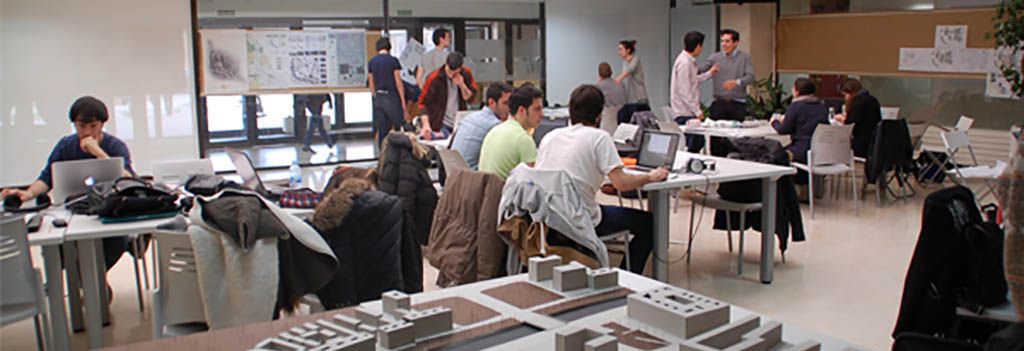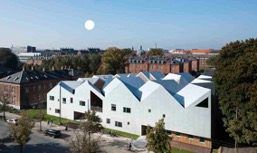GRADUATE PROGRAMMES (MASTERS)

MASTER in ARCHITECTURA
School of Architecture. University of Seville
Courses 2018-19; 2019-20; 2020-21; 2021-22 and 2022-23
Thematic line of the MA07 group
DESIGNING FOR THE ABSENCE OF MEMORY
 Ortega y Gasset said that the three components of the university’s mission are: teaching, research, and the formation of educated people. That is why the teaching prescribed by the corresponding teaching project of this master’s group is aligned with the objectives of the research projects carried out by the Healthy Architecture and City group.
Ortega y Gasset said that the three components of the university’s mission are: teaching, research, and the formation of educated people. That is why the teaching prescribed by the corresponding teaching project of this master’s group is aligned with the objectives of the research projects carried out by the Healthy Architecture and City group.
With our work in the máster, we focus on two scales: On a housing level, our research on the designing of tailored space for the absence of memory, which tackles housing solutions for lack of memory, connects the ageing population with new technologies, focusing on groups affected by certain dementias and cognitive disabilities. We are carrying out this work in collaboration with the basic and applied neuroscience section of the PhD programme in Biomedicine, translational research and new technologies in health at the University of Malaga Medicine Faculty. On a regional and urban scale, this line of research diverges into a different field, which we call memory as construction of the subject, in which we carry out research separately and independently, encompassing the fields of patrimony, landscape and project, concepts in which memory constitutes an existing, inherited consolidated substrate that is also project material for research in architecture.
The theme to be developed in this group of the Master’s Degree will be to investigate how architecture addresses this problem, solving the needs and demands of some inhabitants with memory problems so that they can have a better quality of life, enjoying autonomy and independence. The objective of the PFC will be to learn to project, build, and humanise an environment that is adapted and adaptable to the living conditions of these people with dementia. The project must take into account three essential factors: security, accessibility, and personalization, the latter of which is a fundamental element of the sensory stimulation and emotional stabilisation necessary for these people.
Designing for the absence of memory will be, therefore, the thread and the plot line of this master’s group. The area selected for the exercise is located in various places depending on the academic year and will allow emphasis on both the learning of the usual instruments and materials of architectural design and on reflection on city construction processes.
Santiago Quesada, responsable professor
OUTSTANDING MASTER’S FINAL PROJECTS
University of Seville official Graduate Programmes’ regulation
– Graduate Programmes rules and regulations at University of Seville
– Master in Architecture at the University of Seville
Other ranges of degrees and masters
Range of joint Master’s
Range of double Master’s
Which Masters can you do at School of Architecture of Seville?
Seville School of Architecture Graduate Programmes
– Master in Architecture (MUAH)
– Master in Architecture and Historical Heritage (MARPH)
– Master in Sustainable Cities and Architecture (MCAS)
– Master in Repair of Buildings
– Master in Innovation in Architecture, Technology and Design (MIATD)
– Master in Urban Planning, Planning and Urban Design
Seville School of Architecture’s Master’s courses
– Master in Industrial Heritage Management
– Master in Structural Intervention in contemporary Architecture

